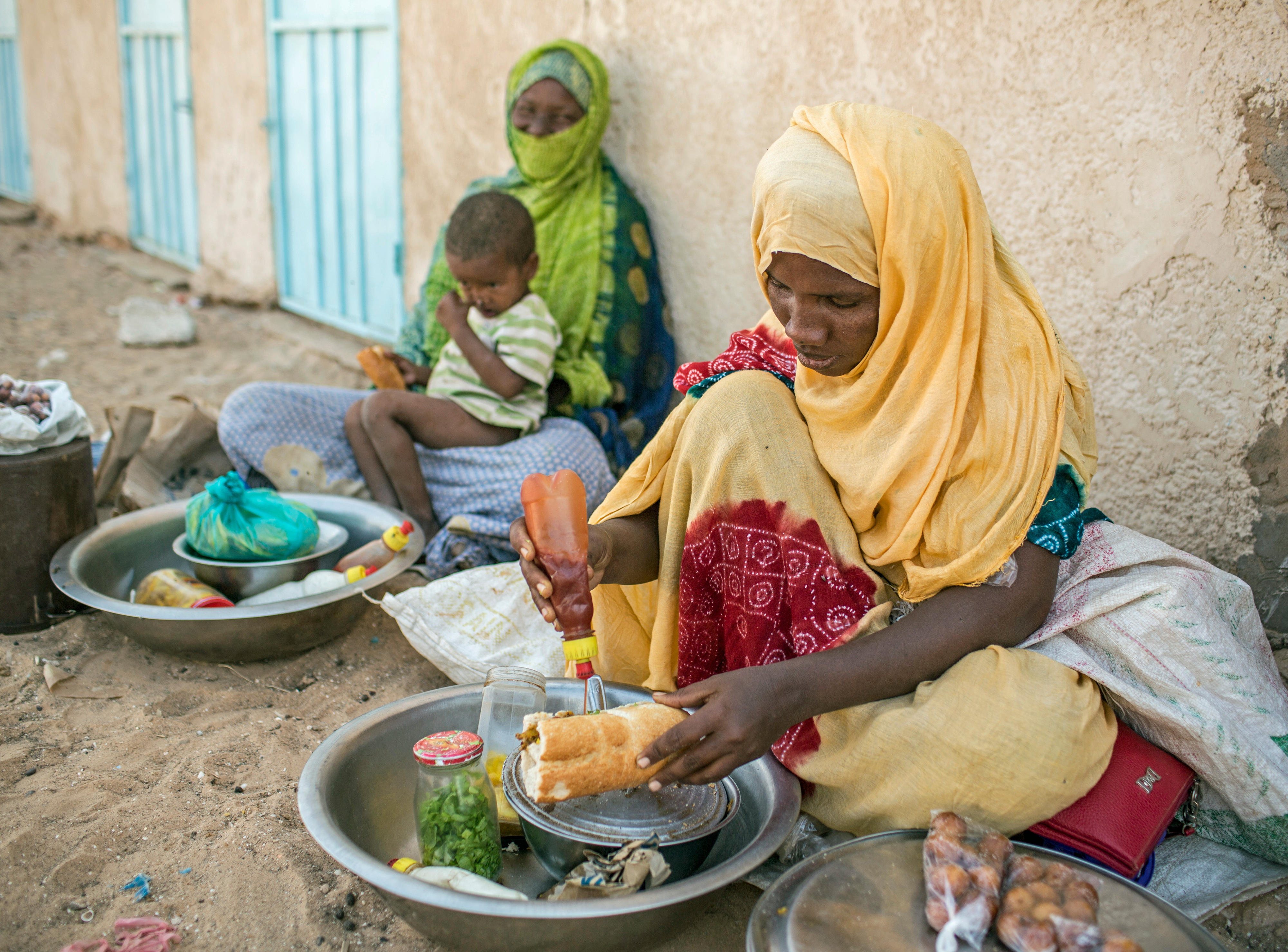Governance and human rights Existing legislation not being implemented consistently
Street vendors in Ouad Naga, Mauritania
Although independence of the judiciary is enshrined in the constitution, in practice it is not always fully realised. There is a lack of qualified staff, and many posts are occupied by judges and prosecutors who are loyal to the regime. Throughout the country, there is a general reliance on traditional Islamic Sharia law over civil systems.
Human rights
The human rights situation in Mauritania has improved in recent years. Various regulations to protect human rights are enshrined in the constitution and in national legislation. Application of these regulations, however, is patchy.
Women enjoy more political and social freedoms in Mauritania than in other Islamic states. And yet, due to social traditions and religious beliefs, women are still subject to discrimination, especially those in low socio-economic groups.
Female genital mutilation is widespread. Supported by the government and Islamic religious leaders, numerous development and non-governmental organisations are engaged in fighting this cruel practice.
Another elementary violation of human rights is slavery, which remains widespread in Mauritania. Slavery was officially abolished in 1980 and offenders have been liable to criminal prosecution since 2007. Under pressure from the United Nations, a new law was adopted in 2015 which includes a more far-reaching definition of slavery and provides for stronger sanctions.
Media freedom
Mauritania has a comparatively free press. The conduct of government members and administrative officials is a topic of critical debate, especially on digital media. However, only the educated elites in large cities have access to newspapers and the internet.
Non-governmental organisations criticise the repeated restrictions faced in particular by human rights activists, bloggers and the opposition on their right to freedom of opinion, freedom of assembly and freedom of association. In 2020, a new law that threatened prison sentences for the publication of false information on social media drew international attention.
In its development cooperation projects, Germany is pushing for better protection of human rights and, in particular, for freedom of opinion and freedom of the media.
As at: 25/07/2023
